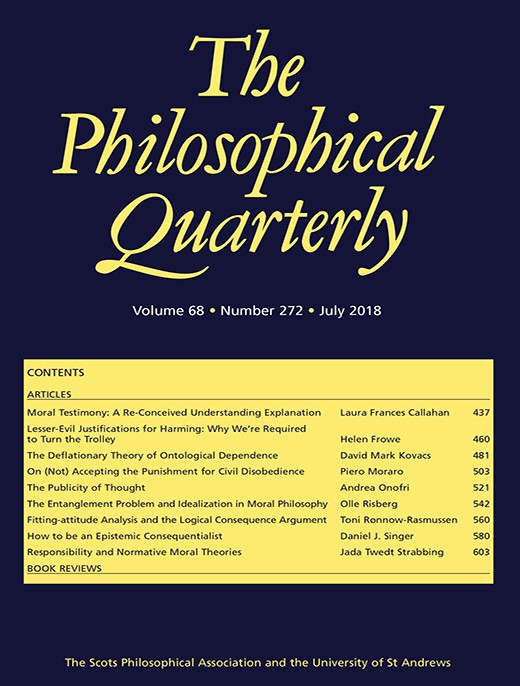-
Views
-
Cite
Cite
Toni Rønnow-Rasmussen, Fitting-Attitude Analysis and the Logical Consequence Argument, The Philosophical Quarterly, Volume 68, Issue 272, July 2018, Pages 560–579, https://doi.org/10.1093/pq/pqx060
Close - Share Icon Share
Abstract
A fitting-attitude analysis which understands value in terms of reasons and pro- and con-attitudes allows limited wriggle room if it is to respect a radical division between good and good-for. Essentially, its proponents can either introduce two different normative notions, one relating to good and the other to good-for, or distinguish two kinds of attitude, one corresponding to the analysis of good and the other to good-for. It is argued that whereas the first option faces a counterintuitive scope issue, an attitudinal approach couched in terms of ‘for someone's sake’ attitudes has the unwelcome consequence that whatever is good for someone is also necessarily good. It is argued that this consequence can be avoided if we modify the standard way of formulating the fitting-attitude analysis of final impersonal value.





